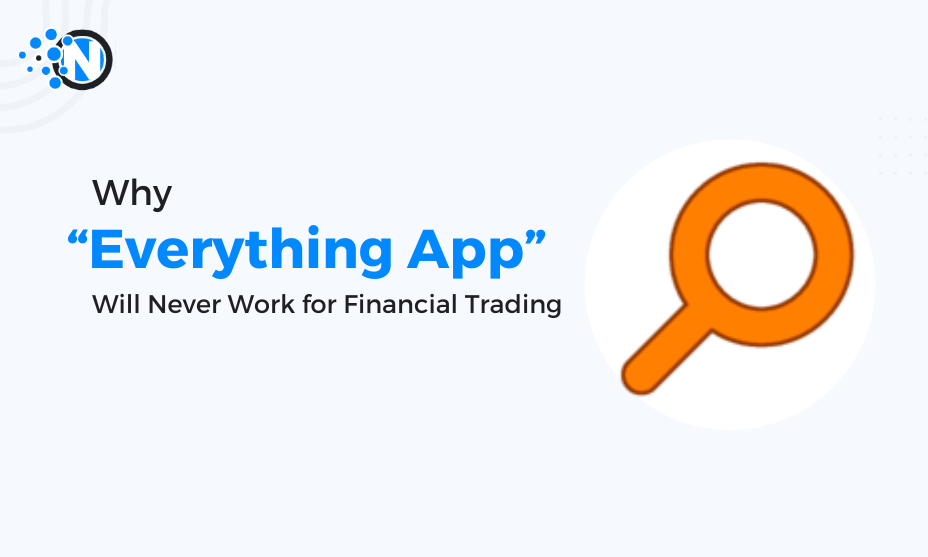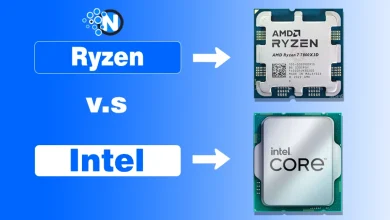Here’s Why “Everything App” Will Never Work for Financial Trading

The concept of fintech has been around for a long time, perhaps longer than you think. The term was actually coined in the early 1970s, coming from the realization that technology would play an increasingly important role in the industry. Yet, it wasn’t until the late 2000s and 2010s that fintech really came of age. We can see this through the lens of investment: Global investment in fintech rose 12,000% from 2008 to 2020. That money went to a diverse range of projects, of course, ranging from VCs pouring money into crypto projects to funding for eCommerce payment startups to creating the architecture that supports online transactions across the internet.
However, there has been an unrealized goal through this period of unprecedented boom in fintech industries, the everything app. The concept of the “everything app” is that, well, it does everything – social media, shopping, identity services, calling a taxi, and so on. And to an extent, some of that has been realized – you can do many of those things on Facebook, for example. But we know that the ultimate ambition has been financial services and payments. We know this because it is what Elon Musk talks about when he lays out his endgame for X/Twitter. We also know that due to the spectacular failure of Facebook’s Libra currency and Diem project. We have had multi-pronged apps – many of them – and you can use services like Meta Pay, but the goal of a multi-pronged social media tool that also encapsulates financial trading has yet to be realized.
An Ambitious Everything App With Financial Trading
So, what exactly are we getting at here? In essence, there is a belief that you can have an app that does everything for you, and that includes stuff like payments, trading, and investing. Elon Musk, who is never one to sound unambitious, spoke about one day having half the world’s global financial system. Musk sees a future where people log into X, chat, and post as usual, and then access financial services. That could be simple investing like buying stocks and cryptocurrency, but it may ultimately be more complex actions like trading derivatives. The latter would need to be integrated if Musk is talking about “half” the global financial system.

“X would serve people’s financial needs to such a degree that over time it would become, I don’t know, maybe half of the global financial system.”. Elon Musk, July 2023
We can take Musk’s assertion with a pinch of salt. But there are reasons to suggest that even a moderately successful everything app that includes financial services may be out of reach. There are some compelling arguments to back this. Let’s look at three of them below:
The Need for Expertise
Financial traders and investors need quality tools. There’s a reason why traders will pay large subscription fees to access products like Bloomberg Terminal and TradingView professional packages. The latter has professional “Ultimate” packages that cost hundreds of dollars per month, all for access to information. The point, as such, is that the pros require expert tools, and they are willing to pay for them. Of course, the same goes for trading platforms. Expert traders want access to specialist online trading platforms that allow them to execute their trades with accuracy and confidence. Platforms like MT4 and MT5, each of which is tailored towards different areas of trading, are trusted by pros because they are expert tools. They don’t use social trading apps like Robinhood because they are not built for professionals or experienced traders.
The Middleman Issue
We mentioned all those billions that have been spent on fintech investment over the last decade or so. And what that has achieved is a vast online financial ecosystem that provides services to each other. Now, we are guessing that X, or any other business with goals of becoming an everything app, is not going to build their own proprietary trading software. Why? It’s too expensive, takes years of expertise, requires regulatory considerations, and so on. So, in that scenario, you are left with the prospect of having a third-party provider, consider something like the app using Coinbase to provide crypto custody services. The integration of the third party means there is another layer, and that means there is another party to take fees. Trading and investment is a competitive industry, and traders eventually flock to the platforms that offer competitive fees and other benefits. And the more middlemen that you cut out, the easier it is to offer those competitive benefits.

The Direction of Travel
We started this piece by talking about how fintech has been around since the 1970s. But where is it going? The answer is easy – decentralization. The whole point of trading and investing online is that you no longer need to use a wealth manager. In the past, someone bought stocks on your behalf, taking a cut, of course. Today, you can enter into a wide range of markets, including commodities like gold and oil, and you can even “be your own bank” with self-custody in crypto, not to mention the tools for trading that were once only available for professional financial traders. So, why, then, would anyone assume that the direction of travel would revert to a centralized platform like X?
Conclusion
Many apps today do more than what they were set up to do. Look at examples like Uber and Facebook. Moreover, in China, WeChat is arguably as close to what we would term an everything app. Yet, financial trading and investing are things that are better served by being separate from everyday activities like shopping. Traders want the best tools to let them get ahead, and they want direct access to the markets. The goal for many Big Tech brands is to create the “Swiss army knife of apps,” but adding financial services to that might be out of reach.




